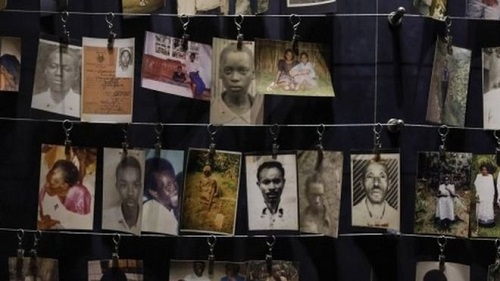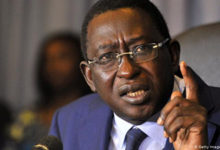
Commemorations have begun in Rwanda to mark the 25th anniversary of the genocide that killed about a tenth of the population.
The country will mourn for 100 days, the time it took in 1994 for 800,000 Rwandans to be massacred.
Most were minority Tutsis, killed by ethnic Hutu extremists.
President Paul Kagame, who led the rebel force that ended the genocide, lit a remembrance flame at the memorial in the capital, Kigali.
The commemoration activities began with the flame-lighting ceremony at the memorial, where about 250,000 victims are said to be buried. The flame will burn for 100 days.
The 61-year-old president, who has led the country since the end of the genocide, then delivered a speech at the Kigali Convention Centre.
He said the resilience and bravery of the genocide survivors represented the “Rwandan character in its purest form”.
Mr Kagame will then lead a vigil at the Amahoro National Stadium, which was used by United Nations officials to try to protect Tutsis during the killings.
A number of foreign leaders are expected to be at some of the events. They are mainly African, although Prime Minister Charles Michel will represent the former colonial ruler, Belgium.
French President Emmanuel Macron will not be there. This week he appointed a panel of experts to investigate France’s role in the genocide.
France was a close ally of the Hutu-led government prior to the massacres and has been accused of ignoring warning signs and training the militias who carried out the attacks.
France will be represented by Herve Berville, a Rwandan-born MP.
Ugandan President Yoweri Museveni will also not be there. He has been accused of backing Rwandan rebels who oppose Mr Kagame.
At midday, Rwanda falls silent to remember the hundreds of thousands of men, women and children who lost their lives over 100 days in 1994.
But for survivors, the memories never fade. It might be a quarter of a century but it doesn’t feel like it. They still carry the scars, literally and figuratively, of those days.
They are still forced to explain to their children why they don’t have grandparents or aunts and uncles. They still dream of the horrors they witnessed. –BBC






